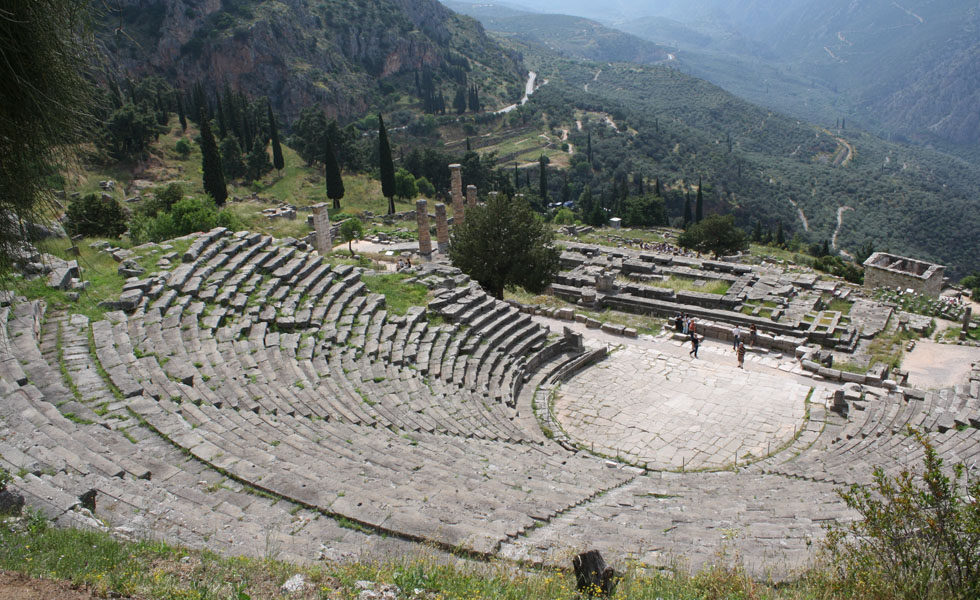Delphi

The energy of ancient Delphi
The center of the world, the “Navel of the Earth”, famed Delphi and its legendary Oracle is perhaps the country’s most important tourist destination after the Acropolis of Athens, for the historical value and riveting energy that the site possesses. Delphi was a continual dominating force from the 7th century BC until its operations were suspended and the site was subsequently closed in 394 AD, having in that time succeeded in becoming the epicenter of the ancient Greek world and that of all of the eastern Mediterranean. The power of its famed Oracle attracted individuals from all walks of life, groups of people and even entire city-states to come receive and answers and solutions to their myriad of questions and problems.
Delphi was also where the second most important PanHellenic Games (after the Olympic Games) were founded and staged: the “Pythian Games”, which introduced use of the laurel wreath to crown victors. Delphi, yet another UNESCO World Heritage Site in Greece, exudes a unique blend of energy, natural beauty and mystery and is consequently one of the world’s most popular tourist destinations. The Sanctuary of Athena Pronaia, perhaps the most characteristic monument of the site and an architectural masterpiece of the classical era; the Doric Sanctuary of Apollo, in whose inner sanctum were carried out the rituals associated with the divination oracle; Castalia Spring, whose waters were used to purify those coming to seek guidance from the words of the Pythia, are all places within Delphi that for each visitor constitute a revelatory meeting with history.
Within the site, visitors can also admire the ancient theater, where musical competitions, celebrations and ceremonies were staged; the ancient stadium, one of antiquity’s best preserved monuments, where the Pythian Games were held; the ancient gymnasium, used as a training ground for athletes; the Archaeological Museum with its exquisite bronze statue of the “Charioteer”, as well as the contemporary facilities of the European Cultural Center of Delphi and the Angelos and Eva Sikelianos Museum of Delphic Festivals.



